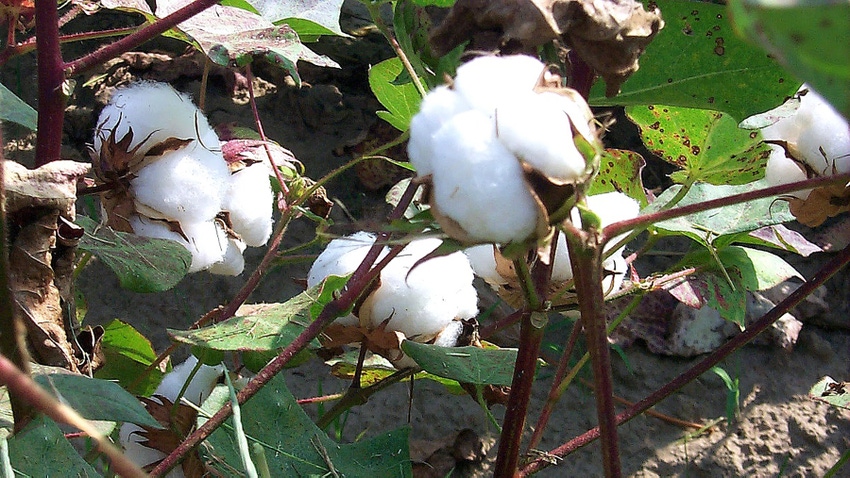December 19, 2023

From increased agricultural commodity competition to the resumption of wheat and corn exports from Russia and Ukraine, global market forces delivered a hit to Tennessee’s agricultural sector in 2023.
Researchers and Extension specialists from the University of Tennessee Institute of Agriculture provide an analysis of these challenges and their impact in the newly released economic report to the governor.
Prices received by Tennessee producers are influenced by local, national and global market forces. Prices declined in 2023, primarily due to record corn and soybean production in Brazil and a resumption of wheat and corn exports from Russia and Ukraine, along with weak export demand.
Concerns over the global economy and inflation continue to influence commodity prices and the agricultural sector. Currently, 2023 marketing year average corn prices are 10% below the five-year average and 34% below 2022; soybean prices are 14% above the five-year average and 9% below 2022; wheat prices are 12% below the five-year average and 34% below 2022; and cotton prices are 13% above the five-year average and 2% below 2022.
Near state records
Although prices are lower compared to last year, average yields for corn, cotton, soybean and wheat were near state records, which should help row crop farmers produce another profitable year.
According to the report, marketing year average prices for the 2023/2024 marketing year will be influenced by South American production, U.S. export demand and 2024 planting intentions for major crop commodities in the Northern Hemisphere.
Tennessee farm-gate prices for the 2023/24 marketing year are projected to be $5.50-$7.00 for wheat; $4.00-$5.50 for corn; $11.50-$13.50 for soybeans; and $0.75-$0.90 for cotton.
“Volatility in commodity prices is likely to persist in 2024, largely due to global economic uncertainty and uncertainty in production,” said crop marketing specialist Aaron Smith in the UTIA Department of Agricultural and Resource Economics.
Cattle report
The livestock industry saw U.S. beef exports from January through August 2023 decrease 12.3% compared to 2022. Total beef export value over the first eight months of 2023 totaled $6.69 billion, a decrease of 18.8% compared to 2022. Pork exports during the first eight months of 2023 were 10.6% higher than 2022 with export values totaling $5.32 billion, an increase of 8.3% compared to 2022.
“Cattle prices are expected to plateau in 2024 but remain strong relative to recent years,” said livestock specialist Andrew Griffith, also in the UTIA Department of Agricultural and Resource Economics. “Red meat demand should support beef and pork prices, as demand has remained strong and total production will moderate.”
Total 2023 U.S. agricultural and related exports were down 9% when compared to 2022 due to lower volumes and lower prices, decreasing the value of U.S. exports.
The factors affecting exports at the national level also affected Tennessee. Although the state’s agricultural and related exports were $3 billion, up $337 million or 13% when compared to the previous fiscal year, Tennessee experienced decreases in all major categories, except for consumer-oriented agriculture, which was up $437 million or 34%.
The overall increase in exports this fiscal year was due to exports of distilled spirits.
Key exports
Key exports for the state included distilled spirits at $1.2 billion and cotton at $846 million, which increased by $477 million and decreased by $37 million, respectively.
Exports of bulk agricultural commodities, which include cotton, tobacco and soybeans, totaled $956 million, down $6 million or 1%; exports of intermediate products such as soybean meal and oil and other feeds totaled $177 million, down 23%; and related-product exports, which are mostly forest products, totaled $158 million, down 21%.
Tennessee continues to be a leading exporter of forest products at $156 million, despite the 21% decline compared to the previous fiscal year.
This year’s report also delineates the alarming loss of agricultural land in Tennessee. From 1997-2017, 1.1 million acres of farmland was converted to other uses, mainly residential.
The amount of farmland lost was equivalent to 55,601 acres/year, 152 acres/day, and 6.3 acres/hour. These losses pick up speed from 2017-2022, with farmland loss increasing to 86,588 acres/year, 237 acres/day, and 9.8 acres/hour.
Farmland conversions
In 2020, the American Farmland Trust ranked Tennessee as the fourth most threatened state for farmland conversions.
Despite a difficult year, Tennessee’s agri-forestry industrial complex continues to bolster the state’s economy, directly and indirectly contributing $89 billion.
Agriculture generated $65.6 billion in output and supported 281,794 jobs.
The state will also benefit from recently received rural infrastructure funds to improve highways, bridges and water and broadband infrastructures.
Agricultural analyses from the UTIA Department of Agricultural and Resource Economics are included in the 2024 Economic Report to the Governor of the State of Tennessee prepared by the Boyd Center for Business and Economic Research at the UT Haslam College of Business.
The following faculty contributed to the agricultural section of the report: Andrew Muhammad, Andrew P. Griffith, David Hughes, Charley Martinez, R. Jamey Menard, Aaron Smith, Sreedhar Upendram and T. Edward Yu.
The University of Tennessee Institute of Agriculture is comprised of the Herbert College of Agriculture, UT College of Veterinary Medicine, UT AgResearch and UT Extension. Through its land-grant mission of teaching, research and outreach, the Institute touches lives and provides Real. Life. Solutions. to Tennesseans and beyond. utia.tennessee.edu.
Source: University of Tennessee Institute of Agriculture
You May Also Like




